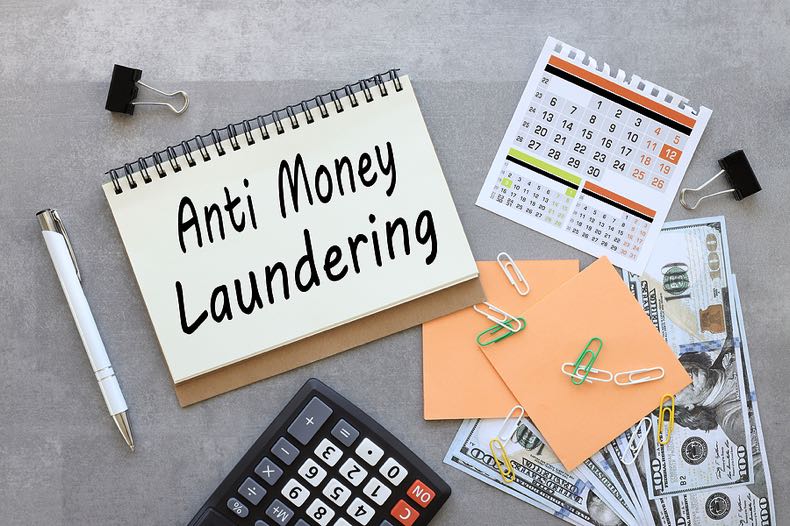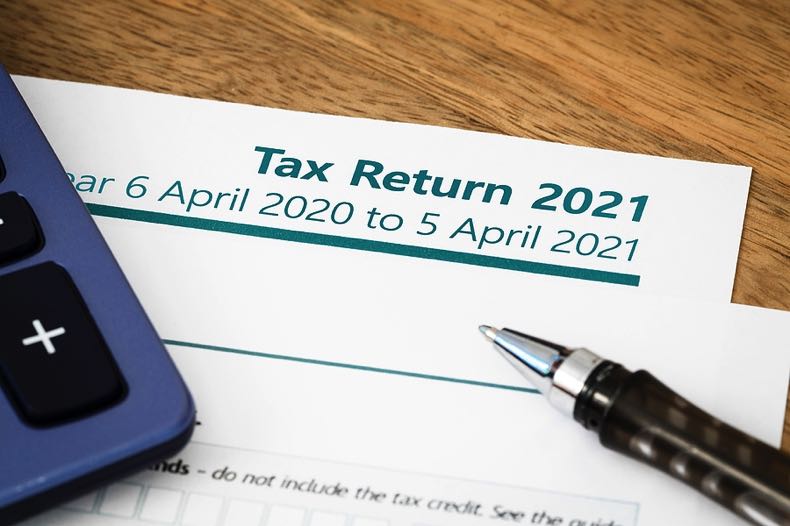 As a UK resident, in order to have an online gambling account there are several key pieces of information you need to provide to the betting site you want to join. Important details, such as your name, date of birth and home address, must be shared with the bookmaker before you can start betting. You may be asked to provide proof of these but, in most cases, verification occurs successfully in the background using existing databases.
As a UK resident, in order to have an online gambling account there are several key pieces of information you need to provide to the betting site you want to join. Important details, such as your name, date of birth and home address, must be shared with the bookmaker before you can start betting. You may be asked to provide proof of these but, in most cases, verification occurs successfully in the background using existing databases.
Not only will bookies verify your identity and address, but they also have the right to ask for proof of your income too. This is something most online gamblers will never be asked for but it can happen and it falls well within UKGC (United Kingdom Gambling Commission) rules. Why and when it occurs is something we will look into here, as well as what happens if players choose to ignore requests for financial documentation.
Why Bookmakers Want to Know Where Customer Funds Come From?

We will first ask the question why do bookies even care where customer money is coming from? Some may perhaps not care themselves, but UKGC regulations effectively force them to care as big fines await for any online bookmakers ignoring the rules. Such rules are in place because the UKGC is keen to crack down on money laundering and bookmakers are often a target for this as they can accept such large sums of cash.
Anti-Money Laundering
If left without question, criminally acquired funds can be funnelled into bookmaker accounts, ‘cleaned’, and then withdrawn. There is also the issue of people, often those addicted to gambling, spending way above their means and preventing this kind of harm falls under what the UKGC calls ‘social responsibility’. Clearly, if a Premier League footballer earning £250,000 a week loses £25,000 at Royal Ascot this is not of major concern. However, if someone with a more normal job loses that amount, the bookies now have an obligation to at least try and act.
Government Fines & Penalties
There are some bookmakers that do not want to accept any dodgy or irresponsibly wagered funds and would employ financial checks regardless of the rules. Others have shown a far less interested stance but this is something that can often land them in deep trouble. Many of the big fines handed out to bookmakers, often reported in the news, are due to failings relating to anti-money laundering and/or social responsibility.
We could give you a long list of examples but here are just a few. In 2019, Ladbrokes Coral were slapped with a £5.9m fine for a ‘systemic’ failure to prevent money laundering. They had practically turned a blind eye to several accounts that had been using stolen funds.
In one instance, a player managed to spend £1.5m over the course of three years and was not once asked for proof of funds. In 2018, William Hill were forced to pay the even higher sum of £6.2m after their failure to check on numerous customers depositing extremely high amounts. On customer who had a salary of £30,000 gambled £654,000 in nine months and was never checked-on.
Finally, there was the case of Daub Alderney, a subsidiary of Stride Gaming that ended up with a £7.1m penalty due to their failings. When the UKGC provoked them into action, they found that 742 accounts that had deposited over £50,000 did not have acceptable (or any) proof for the source of their funds. Despite the numerous fines handed out for failings in this area, the UKGC still state that “gambling companies want to keep crime and money laundering out of the gambling industry”.
When Will a Bookmaker Request Proof of Income?
If you are someone that deposits £20 into your betting account every few weeks, it is highly unlikely a bookmaker will ever ask you for your source of wealth. That said, UKGC guidelines do state “there is no minimum financial threshold for the management and reporting of known or suspected money laundering or terrorist financing activity”. Therefore, if there is any reason to think even a small deposit is sourced illegally, bookies should, and have the right to, investigate.
Customers Making Large Deposits
Usually though checks are carried out for customers that make large deposits on a regular basis, or suddenly make a deposit which is much bigger than normal. In the second instance, imagine there is a customer that typically deposits £30 and bets £1 each time. If they suddenly deposited £1,000 and made a £500 wager, this might raise some internal flags. For players that deposit thousands of pounds, especially in a short period of time, these could well be flagged regardless of their betting patterns.
As stated, there is not a specific threshold for source of wealth checks although we suspect in general the level at which they are often triggered cannot be too high. 888 UK Limited were hit with an extremely large fine partly for having a policy not to ask for proof of funds until depoists reached £40k. This enabled one player to lose £37,000 in the space of six weeks without any contact, let alone a document check. Basically, when there is any evidence a player is spending above their means or may be using illegal funds, checks should be deployed immedialtey.
What Documents Are Required?

A bank statement, or several bank statements showing your name and address is one of the most common things a bookie will ask for but it is not the only thing. Other evidence they can requests includes:
- A payslip from your employer
- A recent credit card statement
- A screenshot from an online payment system/e-wallet
- Contract of your employment
- Tax return
If there is a particularly large one-off payment in your account – for example, the sale of a car or house, further proof regarding these funds may also be requested. Similarly, if it is money you inherited, then evidence of this may need providing. Although you may be concerned about sharing information regarding your employer to a bookmaker, bookies will never contact your employer. In fact, your documents should not be shared with anyone (except the necessary authorities when required) as it would likely be in breach of the bookie’s privacy policy and other data protection laws.
In most cases, just one or two documents will suffice, such as a recent payslip and bank account statement, but each customer is judged on an individual basis. It may seem like quite the serious demand when it arrives but most requests are dealt with quickly and without fuss. It is usually simply a case of sending a couple of digital images off and allowing the bookmaker’s specialist team to take a look at them.
Can I Ignore a Source of Funds Request?
You can ignore a source of funds request for only a short amount of time. Bookies appreciate that it can take a little while to gather such documents together, especially if you are yet to go paperless. In many cases, you will therefore be allowed to continue to use your account as normal for short while at least. Coral, for example, gives players as long as 28 days to hand over the requested documents according to their terms and conditions. 888’s policy was to give customers 10 days although they waited three weeks in the case of one customer, which was another reason for their large fine mentioned earlier.
Account Restricted/Blocked Until Proof of Funds Supplied
When the time elapses and you have not provided evidence, your account will be restricted or blocked entirely. In some circumstances, the bookie will allow a player to carry on betting but only with small amounts. This is quite rare though and more often, customers that do not provide documentation will be unable to place any bets or make a withdrawal and may not be able to access their accounts at all. It is no good to just send in any old evidence either as absence of sufficient evidence will see the restrctions retained.
Criminal Investigation for Those Accounts Flagged for Money Laundering
If you are able to produce sufficient evidence at a later point, the bookmaker will be able to lift the restrictions, giving you back full access to your account. If you cannot though for whatever reason, you will no longer be able to use the account. Should the account be flagged for anti-money laundering, it is very likely it will be completely closed with all the funds taken from it. When there is suspected criminality involved, bookies would not pay any account balance back to the registered customer and criminal investigation may ensue.
Some Accounts Rejected for Insufficient Evidence
Circling back to this idea of ‘sufficient evidence’, there are two reasons why evidence submitted may not pass the bookmaker’s checks. Firstly, it could simply be that the evidence itself is of poor quality, perhaps difficult to read or missing key pieces of information. Alternatively, a customer may only have supplied some, but not all of the documents requested. In addition, not all proof of funds are deemed accepted for the purpose of social responsibility. If the evidence shows a customer is using redundancy money, personal loans or credit cards to fund their habits, these are not deemed ‘responsible sources’. In such cases, a player should, and most likely would, face stake restrictions or be prevented from gambling altogether.
How to Provide Documents

Most bookmakers will have some secure document upload portal that will support various file types. This is usually the safest and most secure way of sharing your documents although you can also send them to a relevant email address instead. Note that this email address is unlikely to be a general customer service one as proof of income cases usually go to a specialist team. Checks with these documents can take longer than a standard age, address or identity check, but you should expect to hear back within a week in most cases.
Bookie Will Ask for Specific E-Documents
As digital documents will be requested, you will not be expected to send original bank statements or printed out copies. Paper versions of documents just slows the entire process down and comes with greater administrative costs so bookies request evidence to be submitted online. The bookie will also ask for specific documents they want from you, rather than giving you a choice from a list.
Should you pass the source of wealth check, it is perfectly possible and probably likely that the bookie never asks for any more evidence in future. They do reserve the right to however, so additional requests for evidence cannot be ignored just because you responded the first time.
A Reminder to Only Bet Using Your Own Money
It is easy to think that you will only be asked to provide source of wealth info if you are using criminal money or you are a gambling addict. While this is often the case, other customers are asked too. One mistake some people make is by placing bets for a friend or family member. Maybe this person has been banned from a bookie or they simply do not have the time to bet for themselves, or perhaps they are currently in a country where access to betting sites is restricted.
No matter what the reason, you are running a big risk by betting on someone else’s behalf, at least on a regular basis. If your bank records show consistent payments are being provided by another and this money is being used for betting purposes, this will breach the bookie’s terms and conditions and may see your account closed.
